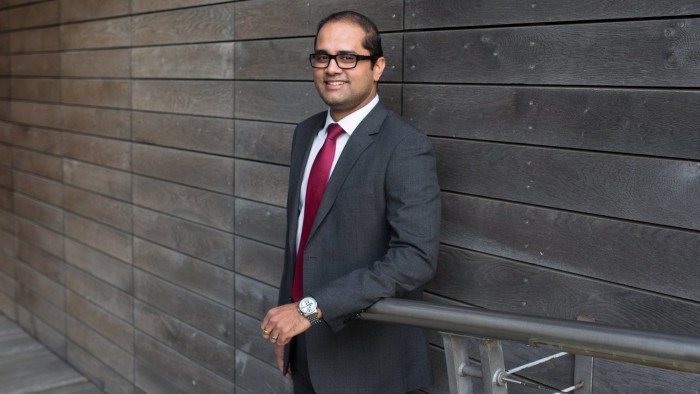When MBAs have second thoughts about their first career choices

Simply sign up to the Business education myFT Digest -- delivered directly to your inbox.
When Jeroen Kemperman completed his MBA at Iese Business School, he decided to pursue his ambition to co-found a technology start-up. It began well: within weeks he had raised €250,000 for his venture, Treeveo, an online project management tool, and signed up Hewlett-Packard as a customer.
But like many young ventures, Treeveo failed to gain traction. Two and a half years after launch, and following several failed reboots of the business model, Mr Kemperman and his team closed the business.
“When you see the company bank account go to zero you have to think of the alternatives,” he says. He also had a young family to support, which was “more important than anything”.
Planning your first job after completing a degree is a core element of MBA course programmes. But often, a first -choice career proves less than ideal.
About 30 per cent of the full-time MBA class at City University’s Cass Business School change their minds about their target job before graduation, according to Jenny Portalska, head of MBA careers at the London campus. Students often rethink because they have problems securing the necessary work visa from a company, or because of changes in the job market. Sometimes the reason is more prosaic: the job sounds boring.
“At some point over the year, [they] might get interested in something new,” says Ms Portalska. “They explore the area and then find that there are elements about the profession that they aren’t as drawn to as they thought.”
Careers departments are at their busiest now, when MBAs are starting the term. Students have time to talk about their job expectations before classes begin. However, the opportunity is brief because they are quickly caught up in the demands of studying, says Jane Barrett, co-founder of The Career Farm, a coaching service that works with business schools.
The reason many first-choice jobs fail to meet MBA students’ aspirations, she suggests, is that students have focused too much on the type of company they want to work for and not enough on their suitability for specific roles.
Ms Barrett recommends students write lists of what they want out of a job, such as salary level, status and recognition from others for their work. Next, rank these potential benefits in order of preference. Ask people already in the roles to help you, she suggests, but make sure you have made a note of what you want to talk about.
“A lot of people go into networking meetings and think it is just having a chat,” she says. “Don’t let them talk about anything they want to. Draw up a list of questions.”
The power of the MBA alumni network at Leeds University Business School was one of the reasons Amit Pandey moved from India to study full-time in the UK. But on this score, it seems he would have been better focusing on his sporting passion, cricket.
At graduation Mr Pandey was preparing to take a full-time role at Communisis, a London-based corporate marketing business, where he had been an MBA intern. But he was talked out of it by the head of an IT division at Halifax bank, whom he met at his cricket club.
“I wanted to move into strategic management at an operational level, but I had not been thinking about what would be the best sector,” Mr Pandey says. “This guy said, ‘hang on a minute. There’s a lot of operational strategy optimisation work going on at Halifax.’ He never employed me directly, but he sent my CV to someone who was hiring people at the Halifax.”
Nine years later, Mr Pandey is still in financial services, although he has moved up through several jobs and companies, most recently becoming a vice-president involved in regulatory strategy at Barclays. Choosing financial services proved a “happy accident”, he says.
For his part, Mr Kemperman has no regrets about his foray into entrepreneurship. Now, however, he is working for an employer, thanks to help from his business school contacts. He loves his new job.
A year before the day of reckoning arrived at Treeveo, a former Iese classmate had recommended that he consider a project management role at Google. After he had finally called his investors at Treeveo and told them that he was closing the company, Mr Kemperman took what then seemed a much harder decision of applying for a salaried role at Google.
“There was this part of me that had a fear of being rejected,” he admits, adding that he did not tell even his close friends about what he had done until he had been offered a job. Now he is working at Google, Mr Kemperman feels he is suited to life as an employee and has finally found his vocation.
“I am really 100 per cent surprised and super-happy that I made it here,” he says, adding that he appreciates the steady income that goes with the job.
Career switching: Ensure your profile fits
Almost nine in 10 MBA graduates on jobs data website Transparent Career changed roles or industry after finishing business school. But success often hung on their past.
Private equity is the most picky. The only outsiders offered jobs there were former investment managers and bankers. Product management roles went chiefly to those with technical experience.
Investment banks accepted the widest range of MBA graduates, but had the longest working hours.
Comments